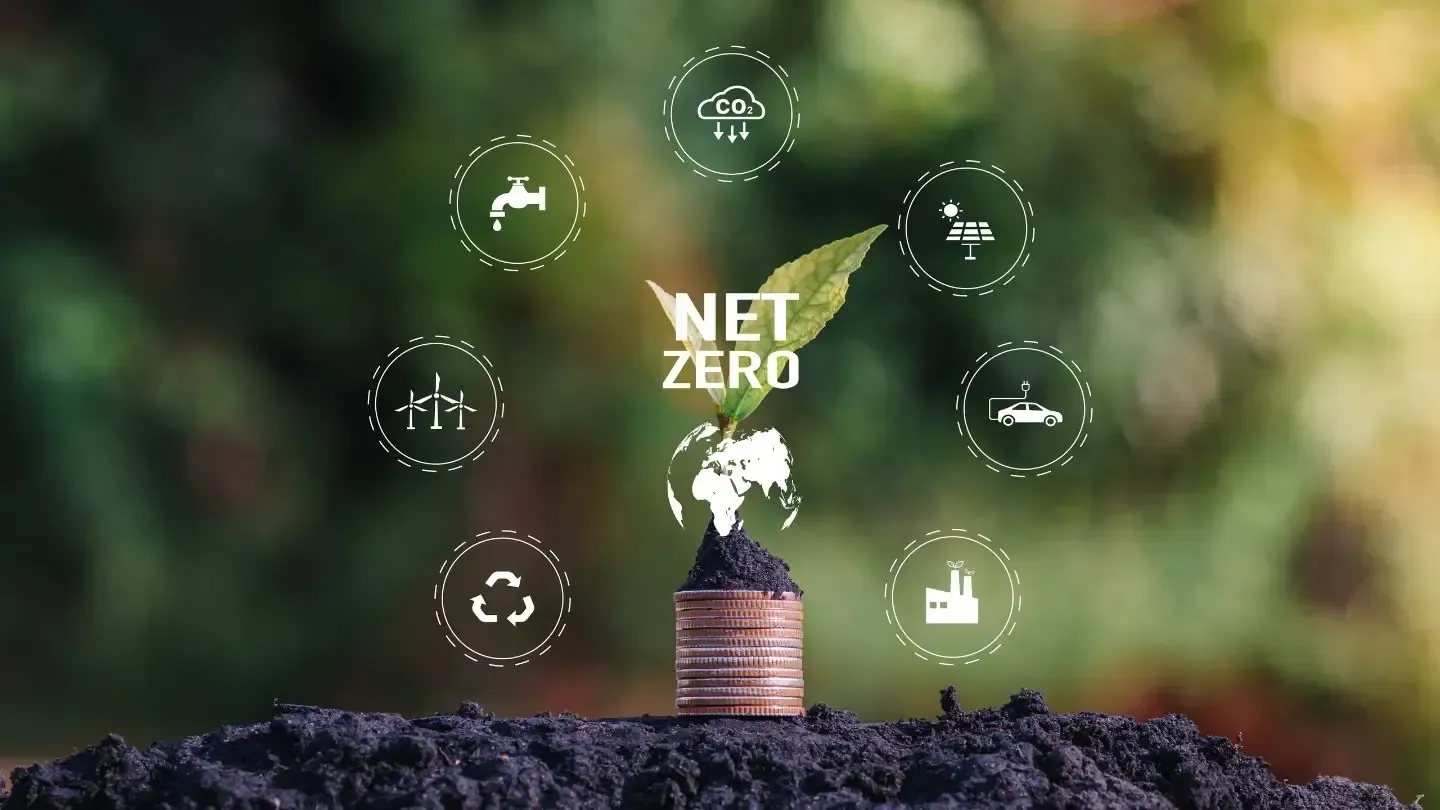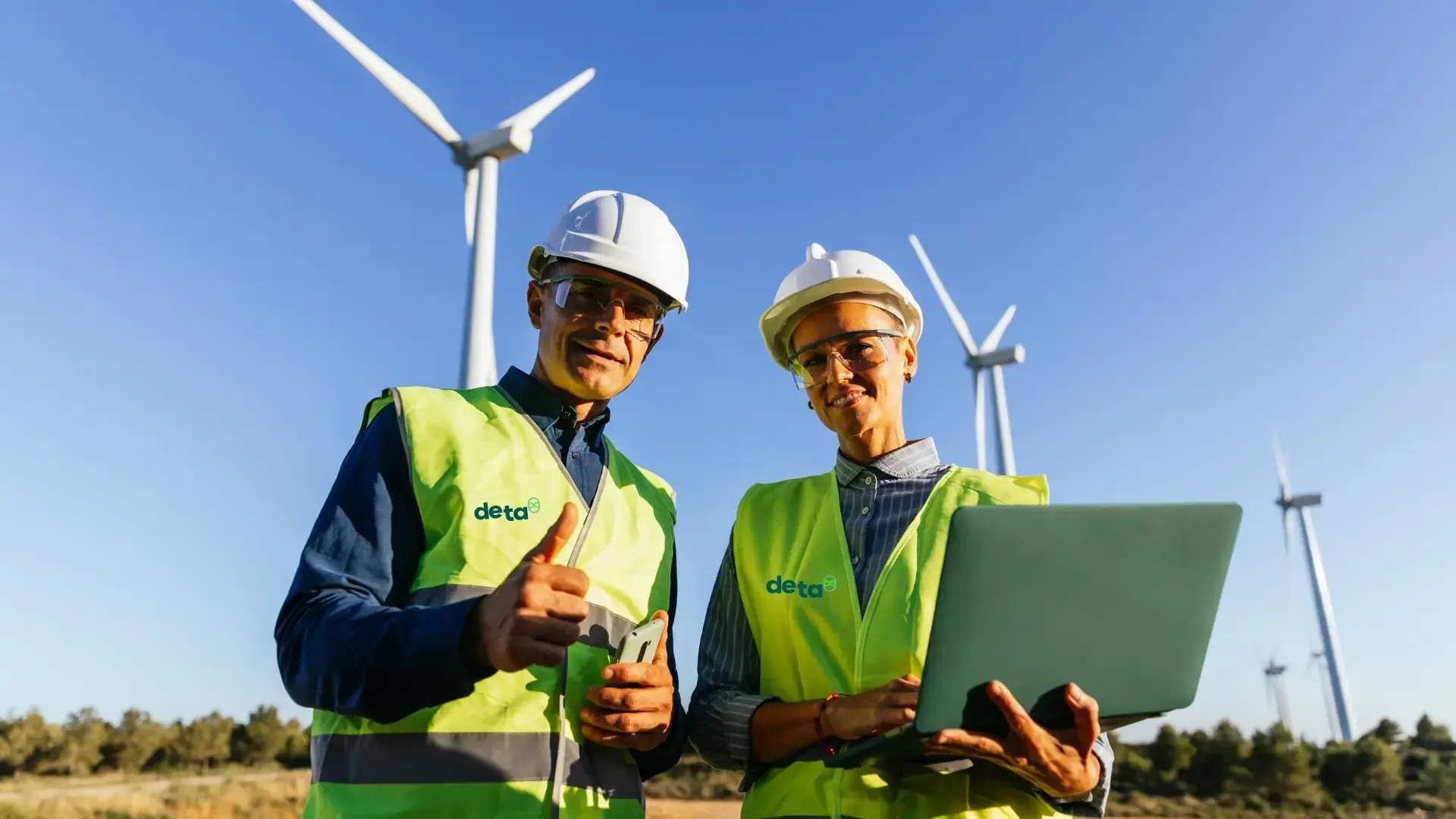From carbon footprint to competitive advantage: sustainability strategies for businesses
It’s not too long ago that sustainability was considered a niche interest area, but as public awareness and interest on environmental issues has grown, eco-friendly practices have transformed sustainability from a buzzword into a business imperative.
Green goals, bigger gains: the path from net zero to net profit
As sustainability has become mainstream, consumers have become more discerning, looking beyond superficial green branding and demanding authentic sustainability practices. This evolution in consumer expectations signals a significant opportunity for businesses to leverage sustainability as a competitive advantage, positioning themselves favourably in a market that increasingly leans towards responsible consumption. Companies demonstrating transparency, affordability, and a long-term commitment to sustainability not only meet consumer demand but also secure long-term success. Afterall, it’s easier for consumers to identify environmentally responsible goods and they are willing to pay more for their sustainable products to lead a greener lifestyle.
As regulations tighten and calls to live more consciously increase, companies failing to act risk falling behind. However, businesses that dynamically embrace sustainability can transform their carbon footprint into a strategic advantage, driving cost savings, enhancing brand reputation, and unlocking new market opportunities. From carbon management to energy efficiency and process engineering services, a tailored robust sustainability strategy positions businesses ahead of competitors who fail to switch to eco-friendly practices or prioritise environmental responsibility.
Measuring and analysing carbon footprint – the first step towards net zero
The first step towards sustainability is understanding where your business stands. Accurately measuring carbon emissions across all operations identifies the key areas for improvement.
- Standardised frameworks such as the Greenhouse Gas Protocol safeguards integrity and accuracy.
- Thorough energy audit and management assessment pinpoints energy wastage and inefficiencies.
- Specialist carbon footprint management tools are deployed to track progress and set realistic reduction goals.
Collaborating with DETA’s experienced carbon management services simplifies this process, ensuring businesses comply with reporting standards while identifying cost-saving opportunities.

Net zero – is it achievable for your business?
Achieving net zero is a long-term goal that offers competitive advantages across industries. By implementing carbon reduction management and decarbonisation services, businesses can roadmap their journey to net zero, making it a realistic and affordable goal. It doesn’t happen overnight, but by incorporating sustainability strategies, businesses can transition towards net zero while maintaining profitability and growth.
Reducing energy consumption for cost savings
Energy efficiency is one of the fastest ways to reduce emissions and operational costs. By investing in energy efficiency services, businesses not only cut emissions but over time also achieve substantial cost reductions. DETA’s expert energy consultants in NZ and Australia assess current consumption patterns and develop tailored solutions, including:
- Upgrading to energy-efficient equipment, lighting and HVAC systems.
- Implementing smart grid technologies for real-time energy management.
- Enhancing building insulation to minimise energy loss.
Transitioning to renewable energy
Reducing reliance on fossil fuels is a powerful sustainability move. Engaging energy efficiency consultants ensures businesses adopt the right renewable energy strategies while optimising costs and benefits. Energy efficiency consultants assess data to identify the most efficient and affordable method to integrate renewable energy into operations. There are numerous options to explore, including:
- Installing onsite solar or wind power systems.
- Entering into renewable energy purchase agreements to source green electricity.
- Utilising geothermal energy for heating and cooling applications.
Optimising supply chain sustainability
What is a sustainable supply chain? It’s when an organisation incorporates ethical and environmentally responsible practices at every stage of business operations: the sourcing of raw materials, production, distribution, and final disposal of waste.

With the support of sustainability consulting services, businesses can embed sustainability principles throughout their supply chains, ensuring compliance with evolving ESG (Environmental, Social, and Governance) requirements. A sustainable supply chain extends a company’s environmental impact beyond its direct operations. Businesses can work towards greener supply chains by:
- Partnering with eco-conscious suppliers who prioritise sustainable sourcing and manufacturing.
- Optimising transportation logistics to reduce fuel consumption and emissions.
- Reducing packaging waste and transitioning to biodegradable or recyclable materials.
- Redesigning products for sustainability. For example, using recycled or renewable materials in product development. Designing for durability and repairability to extend product life cycles.
- Embracing circular economy principles, such as product take-back programs and material reuse.
These efforts not only reduce environmental impact but also appeal to conscious consumers who prioritise sustainability.
Effective waste and water management
Effective waste and water management drives sustainability while reducing costs and regulatory risks to achieve long-term resilience.
Water management: enhancing efficiency and conservation
Effective water management and addressing water scarcity is key to sustainability, cost reduction, and resource conservation. DETA helps businesses optimise water usage by identifying efficiency opportunities such as water recovery, recycling, and improved piping systems. Through efficiency reviews, water balance assessments, and metering system implementation, businesses significantly reduce waste and improve sustainability. With expert guidance from DETA, businesses implement tailored water management strategies that align with operational goals while demonstrating a commitment to sustainable resource use.

Waste management: turning waste into renewable energy
Sustainable waste management goes beyond disposal- businesses can harness waste as a resource. Through bioenergy solutions like biogas production and biomass burning, companies generate renewable energy while reducing environmental impact. DETA evaluates site waste streams, explores Cogen/Trigen suitability and process integration, giving businesses the capacity turn waste into a valuable energy source.
Engaging employees on the sustainability journey
The greatest asset any business has is the people who work for them. Employees play a crucial role in driving sustainability success, and it’s important to gain their understanding and support to foster a culture of environmental responsibility. By making sustainability a shared concern, businesses benefit from increased engagement, innovation, and overall impact.
Embedding sustainability into corporate values and performance metrics is one way to encourage participation, but inspiring employee engagement delivers the best results. There are several ways DETA helps businesses adapt to their new way of thinking, from providing sustainability training and workshops and developing green initiatives, such as waste reduction and energy-saving programs. Once a workforce is onboard with a business’ eco-friendly practices, the change in energy is palpable, the shared pride in what collectively they achieve is inspiring and fuels further innovation. Tatua staff are a prime example of how employees are crucial to the success of carbon reduction strategies; their industry knowledge and enthusiasm for change kickstarted Tatua’s carbon reduction journey.
Go green, stay profitable: why DETA leads sustainability across Australia, NZ and Pacific
Navigating the complexities of sustainability requires expertise. DETA typically develops 10–30-year carbon strategies to move towards a greener, more profitable future with confidence. Remember, businesses do not have to go full steam ahead, rather it’s about making decisions today that support tomorrow’s goals. This long-term approach allows for budgeting and agility. With clear guidance on capital investments, equipment upgrades, and sustainable changes, our strategies help businesses drive measurable results, ensuring both environmental and commercial success. If it all sounds too good to be true, contact your local DETA office by clicking here – we’re always happy to talk sustainability.





